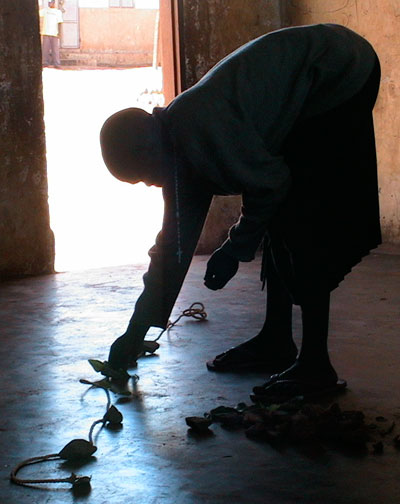
Videos & Podcasts
NET in live sessions
Pay per Click
Coming soon:
Watch videos showing elements of the NET treatment process
Psychoeducation on NET
Narrative Exposure Therapy NET
Step 1 of NET: Applying a Checklist
Step 2 of NET: Laying the Lifeline
Step 3 of NET: Narrative Exposure
Narrative Exposure of a stone
Narrative Exposure of a flower
Narrative Exposure of a Stick
Re-reading: from ego-centric to allocentric
The last session: looking into the future
Dissociation – its etiology and management during NET therapy
More videos and podcasts for your free perusal
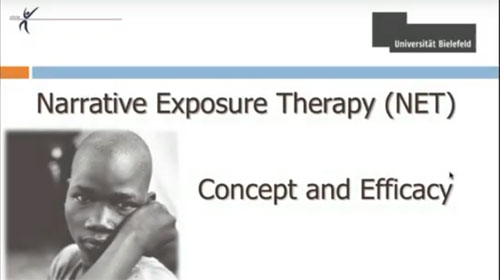
Prof. Dr. Frank Neuner
Narrative Exposure Therapy (NET) – Concept and Efficacy
Nov 2016
APA Division 56 - Trauma Psychology
6 Nov 2016

On April 22, 2022 our Katy Robjant was interviewed by HRH Princess Eugenie of UK of the 'Anti-Slavery Collective' - an organisation which looks to raise awareness of modern slavery and explore how we can all help rid the world of this global epidemic. In their conversation they talk about the impact of human slavery on a community in DRC Congo and how to remedy its psychological scares with NETfacts, a public mental health approach, based on Narrative Exposure Therapy NET.
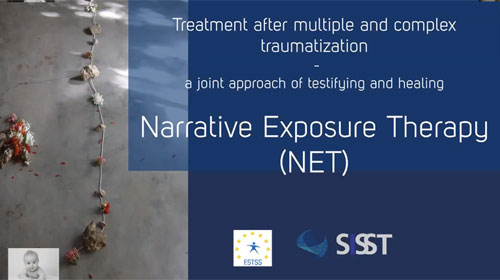
Trauma Spectrum disorders in acute and post-acute phases, 20th & 25th of April 2022
„Treatment after multiple and complex traumatization – a joint approach of testifying and healing: Narrative Exposure Therapy (NET)”
Lecture PD Dr. Maggie Schauer
ESTSS4 Ukraine in collaboration with the Italian Society of Traumatic Stress Studies (SISST)
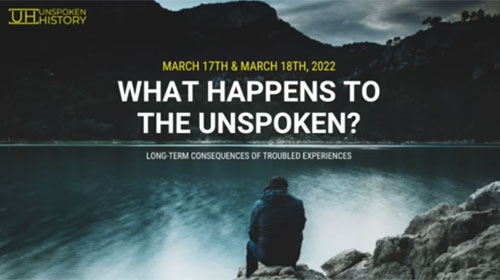
Unspoken History Conference – Norway
“Narrative Exposure Therapy (NET)”
March 17th & 18th, 2022
Lecture PD Dr. Maggie Schauer
What happens to the unspoken?
Long-term consequences of troubling experiences. Even worse than horror suffered is its denial. The Unspoken must be put in words, must be documented, to allow healing, reconciliation and peace. Narrative exposure therapy (NET) is an evidence-based, culturally inclusive intervention that maps an individual’s autobiographical account of major life experiences, especially those that are potentially traumatizing. Healing the wounds of trauma, NET also goes further to document human rights abuses, empowering survivors with means to combat the often systemic violence to which they were subjected.
Read more about our conference here: www.unspokenhistory.com
See also: https://unspokenhistory.com/recordings/

Unspoken History Conference – Norway
“Inheritance of troubling experiences & resilience cross generations“
March 17th & 18th, 2022
Lecture Prof. Dr. Thomas Elbert
Survivors often remain stuck in the traumatic experiences, i.e. they locate their memories as threats in the here and now. This causes constant post-traumatic stress and with it PTSD. Continuous stressors - real or perceived through intrusions - modify the elite unit of the human defence system. Continued mental illnesses as well as physical disorders such as diabetes, obesity or cardiovascular problems are possible consequences.
Altered gene expression changes in particular in the regulatory systems (brain, immune system, hormonal regulation). The epigenetic mechanisms that control these processes can be carried over to subsequent generations. Stressful environmental experiences of parents and grandparents thus affect the phenotypes of children and grandchildren, even if they never met their ancestors. In addition to massive impairments, there are also adjustments to stressful and violent environments, which can be adaptive for the descendants, but are then usually disadvantageous for peaceful environments.
Psychotherapy, such as narrative exposure therapy (NET) has been shown to induce epigenetic changes.
See also: https://unspokenhistory.com/recordings/

Unspoken History Conference – Norway, Narrative Exposure Therapy (NET)
“Telling The Story Of Traumatised Communities: An Introduction To NETfacts“
March 17th & 18th, 2022
Lecture Katy Robjant
What can communities and society learn from traumatic stories to enable them to recover from human rights atrocities?
Whose stories do we want to hear and what preconceptions do we have about them? Narrative Exposure Therapy (NET) allows the survivor to heal from the traumatic wounds of the past at the same time as giving testimony to the violence suffered. However, if these stories never leave the therapy room the impacted community cannot recover.
Taboo and stigma ensure a cycle of secrecy, allowing incomplete perceptions to form that do not include the traumatic details of the events. Without these, the true stories can never be known. In our new approach, NETfacts, we share the testimonies of survivors who have experienced the same events but with different ‘roles’; perhaps as survivor, witness, perpetrator, or (more often) in combination.
Through this approach we ensure that the full ‘facts’ can be shared and understood, and that the community and wider society can bear witness, protect, and heal. This process will be elaborated through discussion of its application to a conflict affected community in Eastern Democratic Republic of Congo.
See also: https://unspokenhistory.com/recordings/
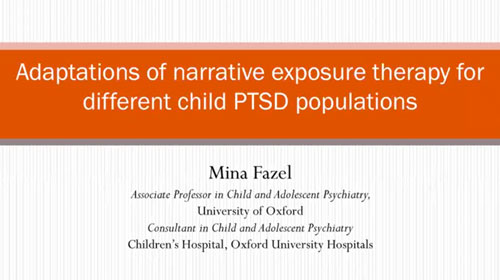
Webinar - Adaptations of narrative exposure therapy for different child PTSD populations
Jun 2020
Mina Fazel, Associate Professor in Child & Adolescent Psychiatry and Consultant Child and Adolescent Psychiatrist, Psychological Medicine, Oxford University Hospitals presents a talk titled: Adaptations of narrative exposure therapy for different child PTSD populations as part of the Child and Adolescent Mental Health Webinar Series.
The paper the webinar title relates to can be found here: https://www.ncbi.nlm.nih.gov/pmc/articles/PMC7043101/
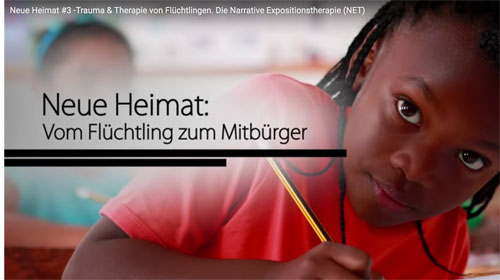
Neue Heimat #3 -Trauma & Therapie von Flüchtlingen.
Die Narrative Expositionstherapie (NET), April 2015
Mehr als 50 Prozent aller Flüchtlinge, die Deutschland erreichen, sind schwer traumatisiert und leiden unter den Folgen. Doch wie jemanden therapieren, der möglicherweise Folter und Gefangenschaft, Vergewaltigung, Raub und Krieg erlebt hat?
Am Kompetenzzentrum für Psychotraumatologie der Uni Konstanz gibt es hierfür eine spezielle Therapie: Die Narrative Expositions Therapie (NET).
Diese Methode hat u.a. auch Ousman das Leben gerettet, dem jungen Gambianer, der in diesem Film von der seelischen Qual seines Traumas und dem Erfolg seiner Therapie berichtet.
Redaktion: Katrin-Cécile Ziegler Produktion: Regio TV Bodenseefernsehen GmbH & Co KG
Partner: Kompetenzzentrum Psychotraumatologie Universität Konstanz
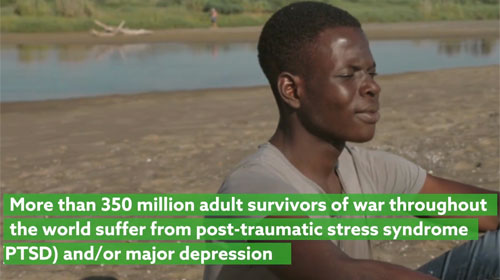
Narrative exposure therapy: A treatment option for survivors of war living with PTSD
Daniel K. Cooper, Elizabeth Wieling, Anett Pfeiffer
Traumatic stress can have detrimental effects on individuals, families, and communities.
Narrative exposure therapy (NET) is an evidence-based intervention for decreasing individuals’ post-traumatic stress disorder (PTSD) symptoms and has been tested in some of the most challenging contexts, such as in post-conflict refugee camps.
Although the focus of NET is on reducing individual PTSD symptoms, the impact of NET can be seen beyond the individual level. The purpose of this paper is to examine some of the ecological implications of using NET with trauma-affected populations in low-resource settings. We describe the implications of NET at the family, community, and sociopolitical levels using several case examples.
Finally, we outline limitations and future directions for improving the delivery of NET in settings with limited resources.
See also: https://doi.org/10.21203/rs.2.18375/v1
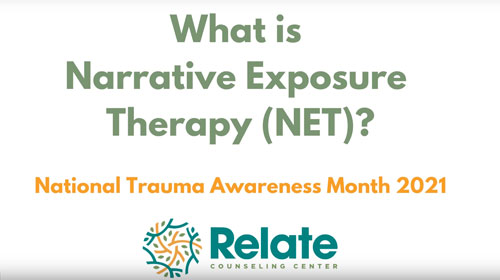
What is Narrative Exposure Therapy (NET)?: A therapist explains how it treats trauma
Ashley Teigland, Outpatient Therapist at Relate Counseling Center, May 2021
Relate Counseling Center therapist Ashley Teigland shares how Narrative Exposure Therapy (NET) reduces symptoms of PTSD by re-organizing traumatic memories.

Formosah & NET Brazil
Music video with German subtitles
